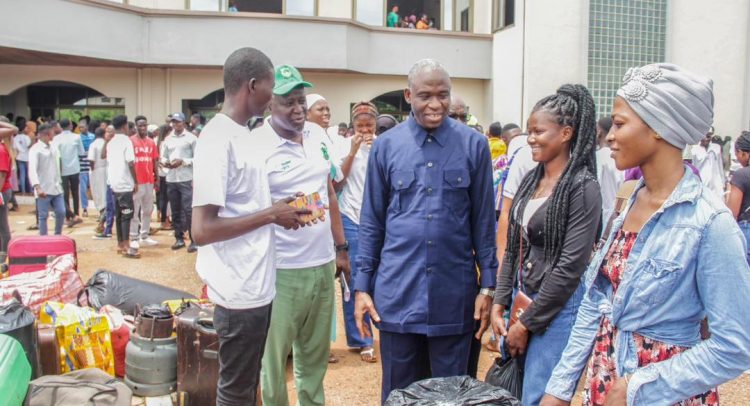The University for Development Studies (UDS) has dispatched a total of 8,746 students to rural communities in the Northern, Northeast, Savannah, and Upper West regions to begin their Third Trimester Field Practical Programme (TTFPP).
The programme forms part of the academic calendar of the University to allow students to learn and gain experience in combining academic work with practical community development and projects.
The students have also been deployed to 22 districts within the four regions for the exercise.
Addressing students at the University Central administration in Tamale during an orientation on Monday, September 18, 2023, before their departure to their various communities, the Vice Chancellor of the University for Development Studies Professor Seidu Al-Hassan noted that the impact of the programme will have on the communities is very key and urged students to pay attention to what they will be doing in the various communities.
“It is not just about sending you there, but we are looking up for the impact, your contribution to help the President to reduce poverty levels across the country”.
He advised the students to be of good behavior during the programme and ensure that they are good ambassadors of the University in the various communities.
The head of the Directorate of Community Relations and Outreach Programmes (DCROP), Professor Addah Weseh said that the TTFPP programme is mandatory for all students adding that Northern Ghana has experienced a lot of transformation as a result of the flagship programme by the University.
Emmanuel Yeboah Donkor, a level 200 student who was deployed to the Chirfo Yili community in the Tolon district of the Northern Region told DGN Online that she is expecting to learn a lot and gain more experience through the programme.
She indicated that the TTFPP will also help her to be able to live and work in any community after she completes school.
The Third Trimester Field Practical Programme (TTFPP) was started in 1994 by the University for Development Studies (UDS) to allow students to serve in rural communities and develop projects that will benefit the communities.
BY Eric Kombat, Tamale


